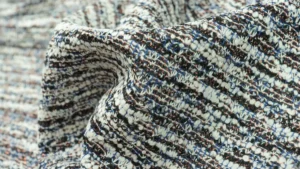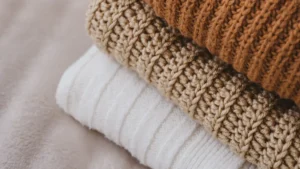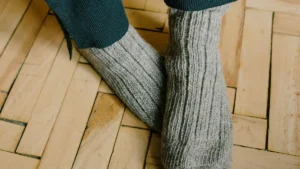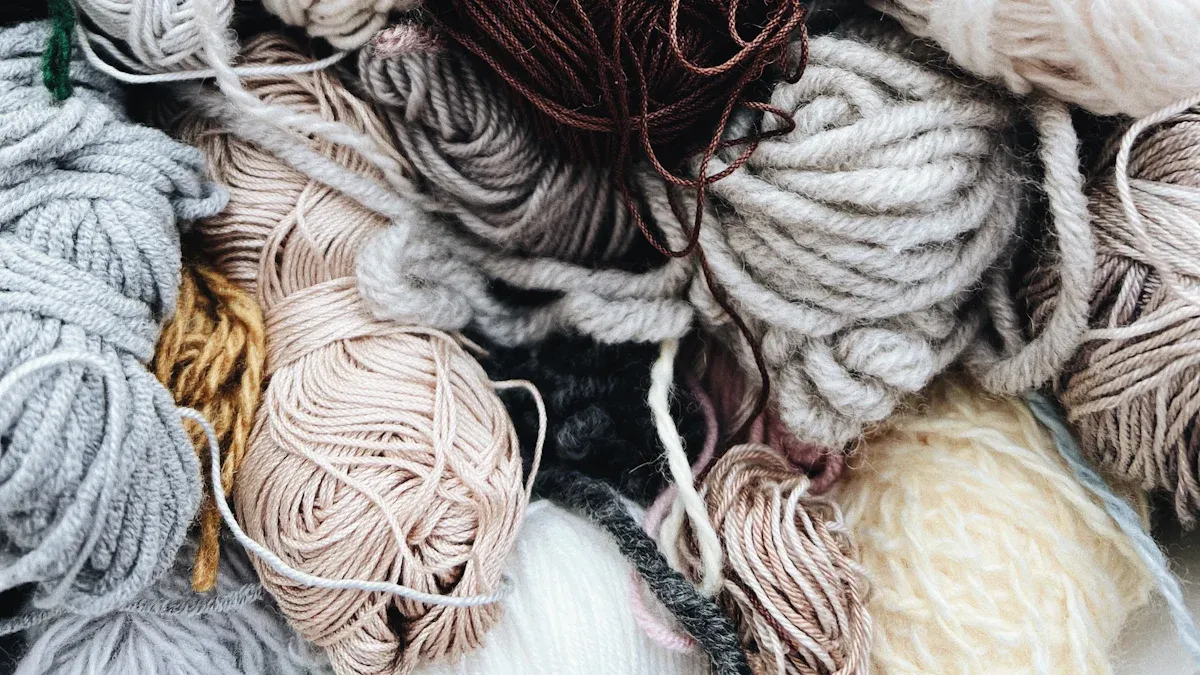
You might wonder, is alpaca wool itchy for most people? The answer is no. Alpaca wool feels soft because its fibers are fine and smooth. It contains very little lanolin, only about 1-3%, which is much less than what is found in sheep wool. Because of this, alpaca wool is hypoallergenic and ideal for people with allergies or sensitive skin. Most people find that alpaca wool is soft and not itchy, enjoying wearing it comfortably for long periods. Only a few individuals with extremely sensitive skin may experience some irritation. If you’re looking for something gentle, alpaca wool is a great choice.
Key Takeaways
Alpaca wool feels soft for most people. It is not itchy because its fibers are fine and smooth. Alpaca wool has very little lanolin. Fibers under 21 microns, like baby and royal alpaca, feel gentle on the skin. These are good for people with sensitive skin. Alpaca wool is hypoallergenic. It is safer for people with allergies because it does not have lanolin. Sheep wool has lanolin, but alpaca wool does not. You should care for alpaca wool the right way. Hand wash it in cool water and let it air dry. This keeps alpaca wool soft and nice to wear for a long time. Pick high-quality alpaca wool and test it on your skin. This helps you avoid itchiness and stay comfortable.
Is Alpaca Wool Itchy?

Fiber Structure
If you ask if alpaca wool is itchy, you want to know why it feels different. The answer is about the fiber structure. Alpaca wool fibers are thin, between 16 and 30 microns. Royal Alpaca is the finest and is about 18 microns. This is almost as soft as vicuña fiber. It is also close to Merino wool, which is known for being comfy.
Average Fiber Diameter (microns) | Notes on Softness and Itchiness | |
|---|---|---|
Royal Alpaca | < 18 | Very fine, soft, non-itchy |
Baby Alpaca | 20 – 22.5 | Soft, suitable for next-to-skin wear |
Alpaca (general) | 12 – 30 | Finer fibers are soft; coarser fibers itch |
Llama | 25 – 30 | Coarser than alpaca, less smooth |
Vicuña | 12 – 14 | Finest fiber, very soft, most expensive |
Merino Wool | 11.5 – 24.5 | Overlaps with alpaca in fineness |
Fibers under 21 microns feel soft and do not itch. When fibers are over 30 microns, they can poke your skin and feel itchy. Alpaca fibers have a smooth surface with small, flat scales. This makes them less rough than sheep wool. The smoothness means less rubbing and less prickly feeling. Even people with sensitive skin often find alpaca wool less itchy than other animal fibers.
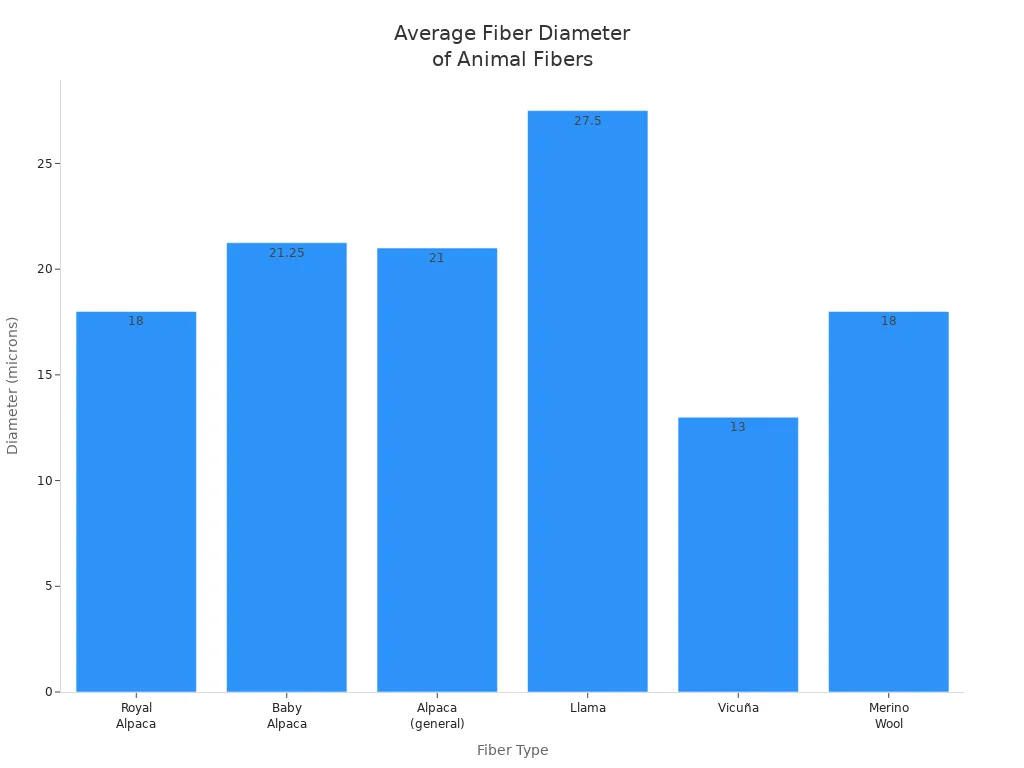
Alpaca wool fibers are softer and smoother than sheep’s wool. They do not have the sharp scales that make regular wool itchy. Wearing alpaca helps you avoid the scratchy feeling from rough fibers. Baby alpaca is extra soft and gentle on your skin. If you ever felt itchy from alpaca yarn, it was likely from a rougher batch, not the soft kind used in good clothes.
Lanolin and Allergies
You might think about allergies when picking wool. Sheep wool has lanolin, a wax that can cause allergies and skin problems. Alpaca wool has almost no lanolin, so it is hypoallergenic. This makes alpaca wool safer for people with allergies or very sensitive skin.
Lanolin is a common allergen in sheep’s wool that can cause skin irritation and allergic responses.
Alpaca wool lacks lanolin, which makes it hypoallergenic and reduces the likelihood of allergic reactions.
The absence of lanolin in alpaca wool contributes significantly to its suitability for people with sensitive skin or wool allergies.
Alpaca fibers have a different protein structure and smoother texture, further decreasing irritation compared to lanolin-containing fibers.
Most people who try alpaca wool do not feel itchy. Itchiness from alpaca wool is rare and usually only happens to people with very sensitive skin. People say that the quality and softness of the fiber matter most. If you pick high-quality alpaca, it will probably feel less itchy than other wools. The smooth fiber and low lanolin make alpaca a great choice for comfort and allergies.
Tip: If you have sensitive skin, choose baby alpaca or royal alpaca. These are the softest and least likely to bother your skin.
Alpaca Fiber and Sensitive Skin
Baby Alpaca
When you want the softest alpaca clothes, look for “baby alpaca wool.” This fiber is gentle and great for people with sensitive skin. You will notice how soft it feels right away. Baby alpaca fibers are much finer and smoother than regular alpaca.
Baby alpaca wool is very soft, like cashmere.
It is good for clothes you wear close to your skin. It is light and keeps you warm.
Alpaca fiber does not have lanolin, so it is hypoallergenic.
The smooth surface and fine micron count (usually 19–22.5 microns) mean less itch and less irritation.
These features make baby alpaca wool a top pick for comfort and less chance of skin problems.
You can see how baby alpaca matches up with other fancy fibers in the table below:
Fiber Type | Micron Count (microns) | Notes on Softness and Use |
|---|---|---|
Regular Alpaca | 26 – 30 | Coarser, strong, good for daily use |
Baby Alpaca | 19 – 22.5 | Softer than regular alpaca; feels like cashmere |
Royal Alpaca | 18 – 19 (under 20) | Softest alpaca fiber; very rare and special |
Merino Wool | ~20 – 24 (varies) | Softer than regular alpaca but not as soft as baby alpaca |
Cashmere | ~19 – 21 (varies) | Feels as soft as baby alpaca |
Vicuña | 11 – 14 | Softest luxury fiber; very rare and costly |
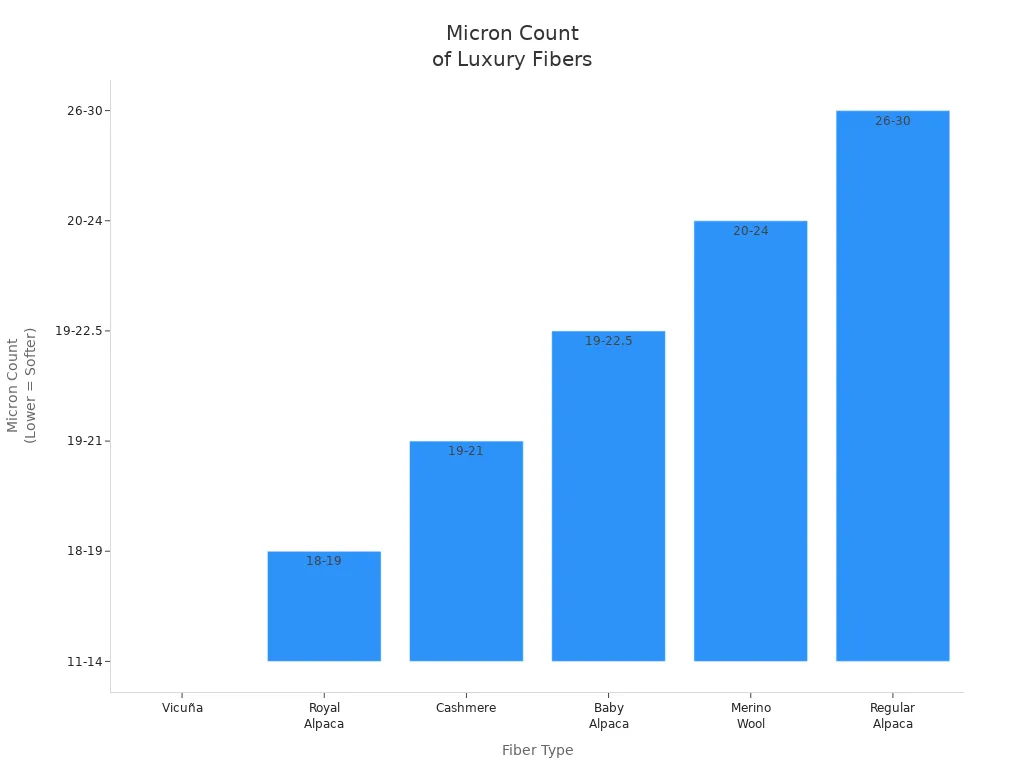
Rare Reactions
Most people wear alpaca with no problems, but sometimes rare reactions happen. These are not real allergies most of the time. They come from the prickle factor. This means thick fibers can poke your skin and feel uncomfortable. Baby alpaca and royal alpaca have thin fibers, so this does not happen often.
Some reasons you might feel itchy are:
Lower grade alpaca fibers that are thicker or rougher.
Blends with other fibers that can bother your skin.
Dust or pollen left on the fiber.
Clothes made with rough seams or tags.
Rare cases where someone is sensitive to natural fibers.
Note: If your skin is very sensitive, test a small spot before wearing new alpaca clothes for a long time.
Alpaca fiber is hypoallergenic because it does not have lanolin. Still, a few people with sensitive skin may feel a little itchy. If you pick high-quality baby alpaca wool, you lower your chance of feeling itchy and get to enjoy the soft, gentle touch that makes alpaca special.
Alpaca Wool vs. Other Fibers
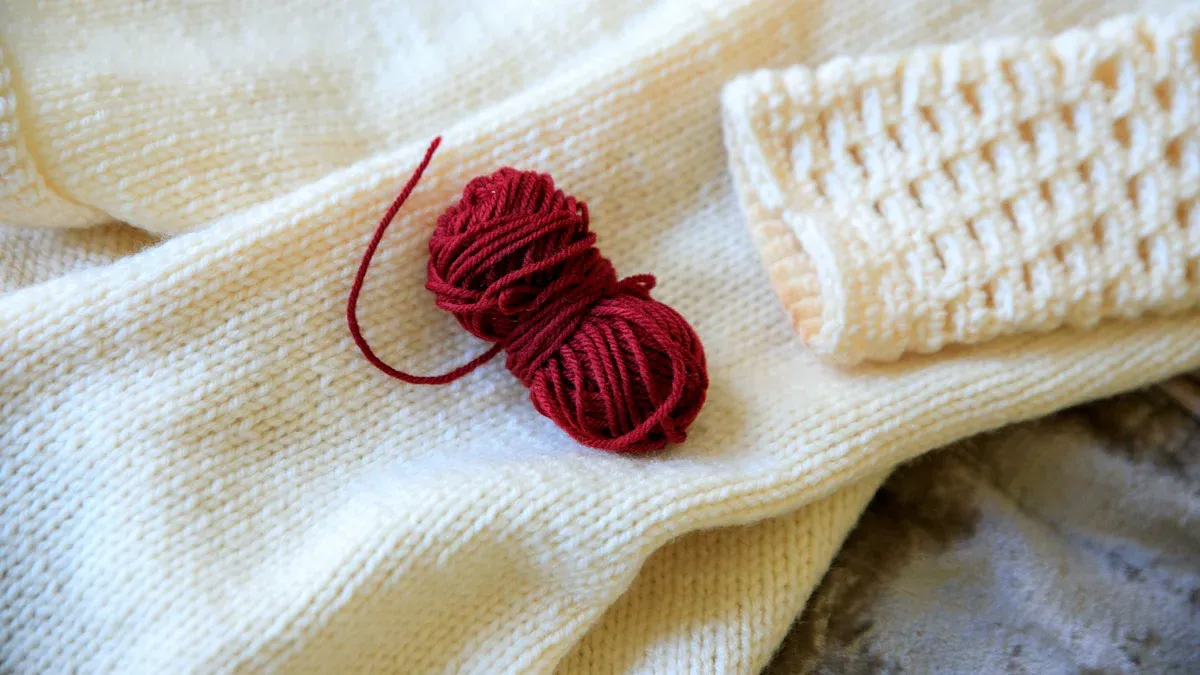
Sheep Wool
When you look at alpaca wool and sheep wool, you see big differences. Alpaca fibers have a hollow or partly hollow center. This helps trap air and keeps you warm without feeling heavy. Sheep wool fibers are mostly solid. They use crimp and air pockets to keep you warm, but this makes them heavier for the same comfort.
Alpaca fibers feel smoother and flatter on the outside. This smoothness means less prickling and more comfort for your skin. Sheep wool has more scales on the outside. These scales can make your skin feel itchy. If your skin is sensitive, alpaca wool will likely feel much better.
Here is a table that shows the main differences:
Aspect | Alpaca Wool | Merino Wool |
|---|---|---|
Inner Fiber Structure | Hollow or semi-hollow, traps air, lightweight | Solid, relies on crimp for insulation |
Outer Fiber Structure | Smoother, flatter scales, less prickle | More scales, can cause itchiness |
Lanolin Content | Lanolin-free, hypoallergenic | Contains lanolin, may cause irritation |
Moisture Absorption | 10-11%, dries faster | Up to 30%, dries slower |
Warmth-to-Weight Performance | Superior, less bulk | Heavier for same warmth |
You can wear alpaca clothes all day and stay dry and warm. Alpaca wool does not soak up as much water, so it dries faster and does not feel damp like sheep wool. If you have allergies, alpaca wool is safer because it does not have lanolin.
Merino and Cashmere
Merino wool and cashmere are both soft fibers. Merino comes from a special sheep. Cashmere comes from goats. Both have fine fibers, but alpaca wool often feels even softer. Many people with sensitive skin like alpaca because it is hypoallergenic and has fewer barbs or scales.
Let’s see how these fibers compare in softness and comfort:
Fiber Type | Softness Factors | Itchiness Factors | Consumer Experience |
|---|---|---|---|
Alpaca Wool | Fine diameter, malleable edges, minimal barbs | Hypoallergenic, no lanolin, minimal barbs | Preferred by sensitive skin, often softer than cashmere |
Merino Wool | Fine fibers, soft | Contains lanolin and barbs, can cause irritation | Some itchiness, superwashing helps but not always enough |
Cashmere | Soft, malleable, no lanolin | No lanolin, less itchiness | Luxurious, but alpaca wool often reported as even softer |
Studies show that fiber thickness matters most for comfort. Fibers under 21 microns feel soft and do not itch. Alpaca wool, especially baby and royal types, are in this range. Cashmere also has a low micron count, usually between 15 and 19. Merino wool can be very fine, but some types are thicker and may feel prickly.
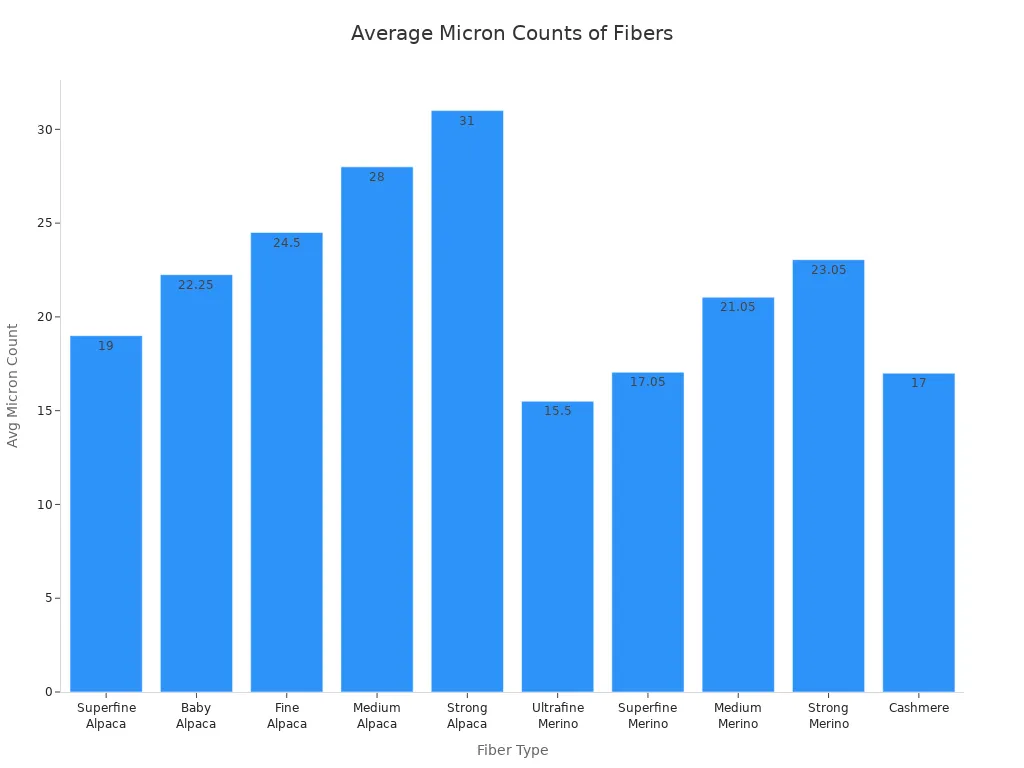
If you want very soft clothes, alpaca wool is a great choice. You get warmth, comfort, and less chance of feeling itchy. Many people say alpaca clothes feel even better than cashmere or merino. You can enjoy soft, cozy clothes that are good for sensitive skin.
Factors Affecting Itchiness
Fiber Quality
When you buy alpaca clothes, fiber quality matters a lot. The size of each fiber is called the diameter and is measured in microns. Smaller fibers feel softer and do not bother your skin as much. If the alpaca fiber is less than 21.5 microns, it will feel soft and not itchy. Fibers over 30 microns can feel rough and might poke your skin.
Here is a simple chart to show how fiber size changes comfort:
Micron Range | Itchiness Likelihood | Wool Type Example |
|---|---|---|
< 20 microns | Itch-free | Baby and Royal Alpaca |
21 – 29 microns | Comfortable for most people | Regular Alpaca (lower end) |
> 30 microns | Itchy | Regular Alpaca (coarser) |
Look for alpaca labeled “baby” or “royal” for the softest feel. These types have smooth fibers that slide gently on your skin. Lower quality or mixed fibers can feel scratchy, so check the label before buying. Your own skin can be more or less sensitive, but fiber size is the biggest reason for itchiness or comfort.
Tip: Pick 100% pure alpaca for the softest feel and to avoid blends that might bother your skin.
Cleaning and Care
How you wash and store alpaca clothes changes how soft they feel. Good cleaning keeps the fibers smooth and helps them stay hypoallergenic. Always air out your alpaca clothes after wearing them. Wash by hand in cold or lukewarm water with a gentle soap. Do not scrub, twist, or wring the fabric.
Follow these easy steps for best results:
Soak gently in cool water with mild soap.
Rinse well to get rid of all the soap.
Press out water with a towel—do not twist.
Keep your alpaca clothes in a dry place where air can move. Do not use plastic bags because they trap water and can cause bad smells or mildew. Washing too much or using strong cleaners can make the fibers rough and less soft.
Note: Gentle care keeps your alpaca soft and helps stop irritation, especially if your skin is sensitive.
Alpaca wool stands out as an itch-free option for most people. Its fine, smooth fibers and lack of lanolin make it hypoallergenic and gentle on sensitive skin. Many users praise alpaca for its comfort and softness, even during long wear. If you have very sensitive skin, try baby alpaca and always test a small patch first. Hand-wash your garments to keep them soft and maintain their natural qualities.
Tip: Choose high-quality alpaca wool and care for it properly to enjoy lasting comfort.
FAQ
Does alpaca wool shrink when you wash it?
Alpaca wool can shrink if you use hot water or a dryer. Always wash your alpaca clothes by hand in cool water. Lay them flat to dry. This keeps the fibers soft and the shape perfect.
Can you wear alpaca wool if you have wool allergies?
You can usually wear alpaca wool even if you have wool allergies. Alpaca fibers do not contain lanolin, which often causes allergic reactions. Most people with sensitive skin find alpaca comfortable and safe.
Is alpaca wool good for babies or children?
Yes! Alpaca wool, especially baby alpaca, feels soft and gentle. It does not itch most children’s skin. You can use it for baby blankets, hats, or sweaters. Always check for any rare skin reactions first.
How do you store alpaca wool clothing?
Store your alpaca wool in a cool, dry place. Use a breathable cotton bag or pillowcase. Avoid plastic bags. Add a lavender sachet to keep moths away. This helps your clothes stay fresh and soft.



